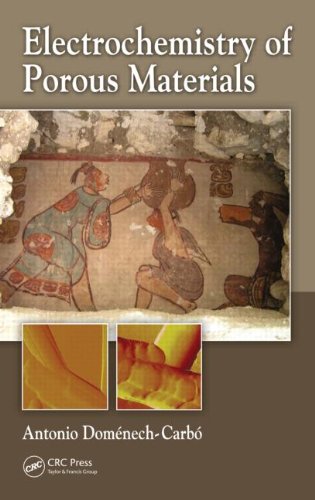

Most ebook files are in PDF format, so you can easily read them using various software such as Foxit Reader or directly on the Google Chrome browser.
Some ebook files are released by publishers in other formats such as .awz, .mobi, .epub, .fb2, etc. You may need to install specific software to read these formats on mobile/PC, such as Calibre.
Please read the tutorial at this link: https://ebookbell.com/faq
We offer FREE conversion to the popular formats you request; however, this may take some time. Therefore, right after payment, please email us, and we will try to provide the service as quickly as possible.
For some exceptional file formats or broken links (if any), please refrain from opening any disputes. Instead, email us first, and we will try to assist within a maximum of 6 hours.
EbookBell Team

0.0
0 reviewsPorous materials continue to attract considerable attention because of their wide variety of scientific and technological applications, such as catalysis, shape- and size-selective absorption and adsorption, gas storage, and electrode materials. Both research and applications of porous materials—via electroanalysis, electrosynthesis, sensing, fuel cells, capacitors, electro-optical devices, etc.—heavily rely on electrochemistry.
Electrochemistry of Porous Materials focuses on generalized theoretical modeling and describes redox processes for different porous materials, assessing their electrochemical applications. Considering the large variety of materials that can be classified as porous, the text focuses on nanostructured micro- and mesoporous materials. Using this approach, the book offers a more focused and practical analysis of key porous materials that are considered relatively homogeneous from an electrochemical point of view. These include:
With its detailed presentation of advances in electrochemistry of nanostructured materials, this text specifically addresses the foundation and applications of the electrochemistry of microporous materials. It incorporates the latest breakthroughs in applied fields (development of fuel cells, supercapacitors, etc.) and fundamental research (in areas including fractal scaling, photoelectrocatalysis, magnetoelectrochemistry, etc.).
Designed to make the topic accessible and understandable for researchers and graduate students working in the field of material chemistry, this volume approximates porous materials chemistry to electrochemists. Selective and streamlined, it culls a wide range of relevant and practically useful material from the extensive literature on the subject, making it an invaluable reference for readers of all levels of understanding.